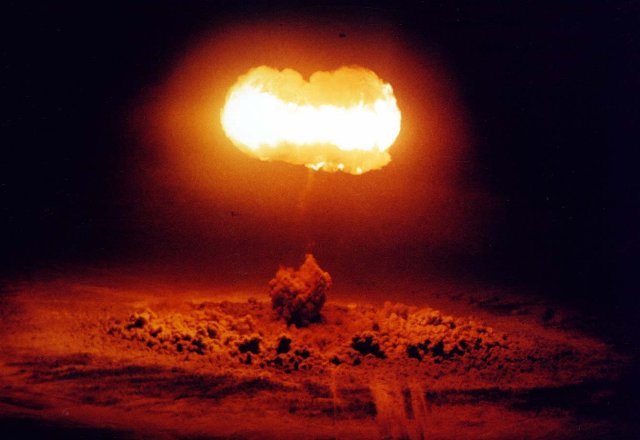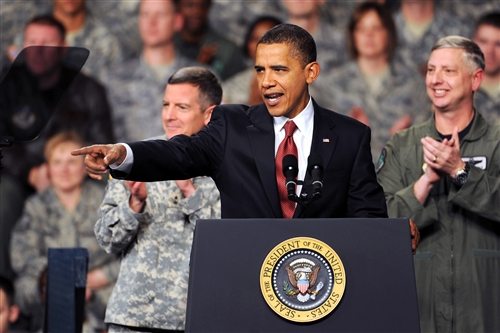Over the past several weeks as events in Crimea and eastern Ukraine have unfolded, the world has had a chance to see the new Russian defense strategy and force posture in action. Russian President Vladimir Putin has successfully finessed his country’s myriad of weaknesses – economic, political, demographic and military – in ways that permit him to use coercion and even naked military force against his neighbors with near impunity. Dealing with an aggressive, yet relatively weak Russia poses a far different problem for the West than deterring or containing a rising China.
The successful occupation of Crimea and the current operations to destabilize eastern Ukraine belie the general weakness of Russia’s conventional military forces. Successive modernization campaigns have run afoul of budget difficulties, weaknesses in the country’s military-industrial complex, the inability to shift from a conscript-based to a professional military, a limited pool of acceptable conscripts and political infighting. Efforts to mimic Western militaries’ transformation from quantity to quality in military forces have been only partly successful.
Despite a significant increase in defense spending in recent years, the Russian military not only lacks sufficient modern equipment but many of the critical enablers to support the kind of high intensity, fast-paced, information-intensive operations that the United States and a number of its allies can conduct. Russia has had to go to foreign suppliers, including NATO countries, for such capabilities as amphibious warfare ships, unmanned aerial vehicles and even training facilities.
One of the few successes of the Russian military modernization program is its special operations forces (SOF). Following the near-debacle of the 2008 war with Georgia, the Russian government revamped its special operations command and control structure and focused on increasing the capabilities of SOF units. It paid particular attention to enhancing the ability of these forces to conduct counter-terrorism and subversion operations. In addition, the Russian military focused on combining deployments of special operations forces on the ground with new tactics and techniques for counter-C3 warfare, including expanded cyber attacks. Commentators have noted the advanced equipment sported by a number of Russian units in Crimea and even in eastern Ukraine.
The other area where Russian defense investments have paid off is in nuclear weapons. Russia is a major power because it, along with the United States, is the largest nuclear weapons state in the world. With respect to theater nuclear weapons, the Russian inventory is estimated to be ten times that of the United States. Russia is deploying a new inter-continental ballistic missile, submarine-launched ballistic missile, at least one theater ballistic missile and possibly a nuclear-capable cruise missile.
Nuclear weapons are at the heart of President Putin’s geo-political strategy for reasserting Russian influence not only in the near-abroad but also in Europe as a whole. The Kremlin believes that if Europe remains vulnerable to Russian nuclear threats it can be influenced, even coerced on subjects such as Ukraine. In effect, Moscow hopes that this threat will encourage NATO and the European Union to stand by as the Russian empire is recreated.
One of the primary reasons that Russia has been so steadfastly opposed to the deployment of missile defenses in Europe, even though proposed defenses will be incapable of defeating Russian strategic nuclear forces, is because it is concerned that such capabilities will devalue their nuclear weapons as instruments of coercion with respect to Europe. For this reason, the hint put forward recently by the Obama Administration that it is considering accelerating the deployment of theater missile defenses, the Phased Adaptive Architecture, to Eastern Europe, is a significant threat to the Kremlin.
Russia’s military is an extremely brittle instrument. It will be decades, if ever, before Russia will pose a conventional threat to NATO. In the meantime, the West will have to figure out how to help those living in Russia’s neighborhood withstand the kind of tactics and forces Moscow employed in Crimea and is currently employing in eastern Ukraine.











